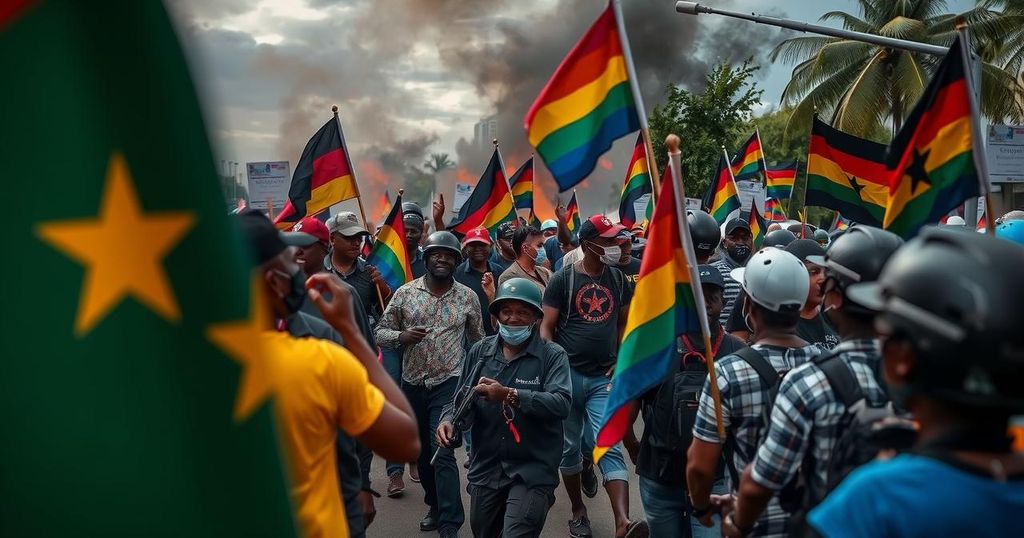Mozambique has banned protests following violent unrest that arose after a disputed presidential election. The Interior Minister labeled the demonstrations as terrorism, citing public safety concerns. Armed forces have been deployed to restore order amid reports of excessive force by police against protesters. Accusations of electoral manipulation persist, raising significant concerns about the integrity of the electoral process and government accountability.
After weeks of escalating violence following Mozambique’s disputed presidential election, the government has instituted a ban on protests. The unrest, which resulted in at least 18 fatalities according to Human Rights Watch, erupted after the Frelimo party, in power since 1975, was declared the election winner with over 71% of the votes. Interior Minister Pascoal Ronda labeled the demonstrations as “acts of terrorism,” citing severe disruptions to public safety as justification for the ban and calling for cooperation with authorities. Opponents of the election have expressed concerns over rigging and unfair practices, while the government has dismissed such claims. Soldiers have been deployed in efforts to maintain order as social tensions rise, with reports of increased restrictions on internet access aimed at curbing dissent. Amidst the ongoing turmoil, the potential for further violence remains palpable as the opposition calls for accountability and transparency.
The recent elections in Mozambique have ignited widespread protests and unrest, primarily due to allegations of electoral malpractice. The Frelimo party, which has been the ruling party for nearly five decades, faced accusations of manipulating results in their favor. These events reflect deeper issues regarding democracy, governance, and human rights within the country. The response from government authorities has escalated tensions, raising questions about the priorities of the state in maintaining order at the expense of public expression and civil rights.
The situation in Mozambique following the presidential election underscores a complex interplay between governance, public dissent, and human rights. The government’s decision to ban protests reflects the severity of the unrest and the perceived threats to public safety. However, this move risks further alienating the population and stifling necessary political dialogue. As the government seeks to maintain order, the response of the opposition and civil society may lead to increased tensions and a call for reform that addresses the underlying issues affecting the nation’s democracy.
Original Source: www.bbc.com






